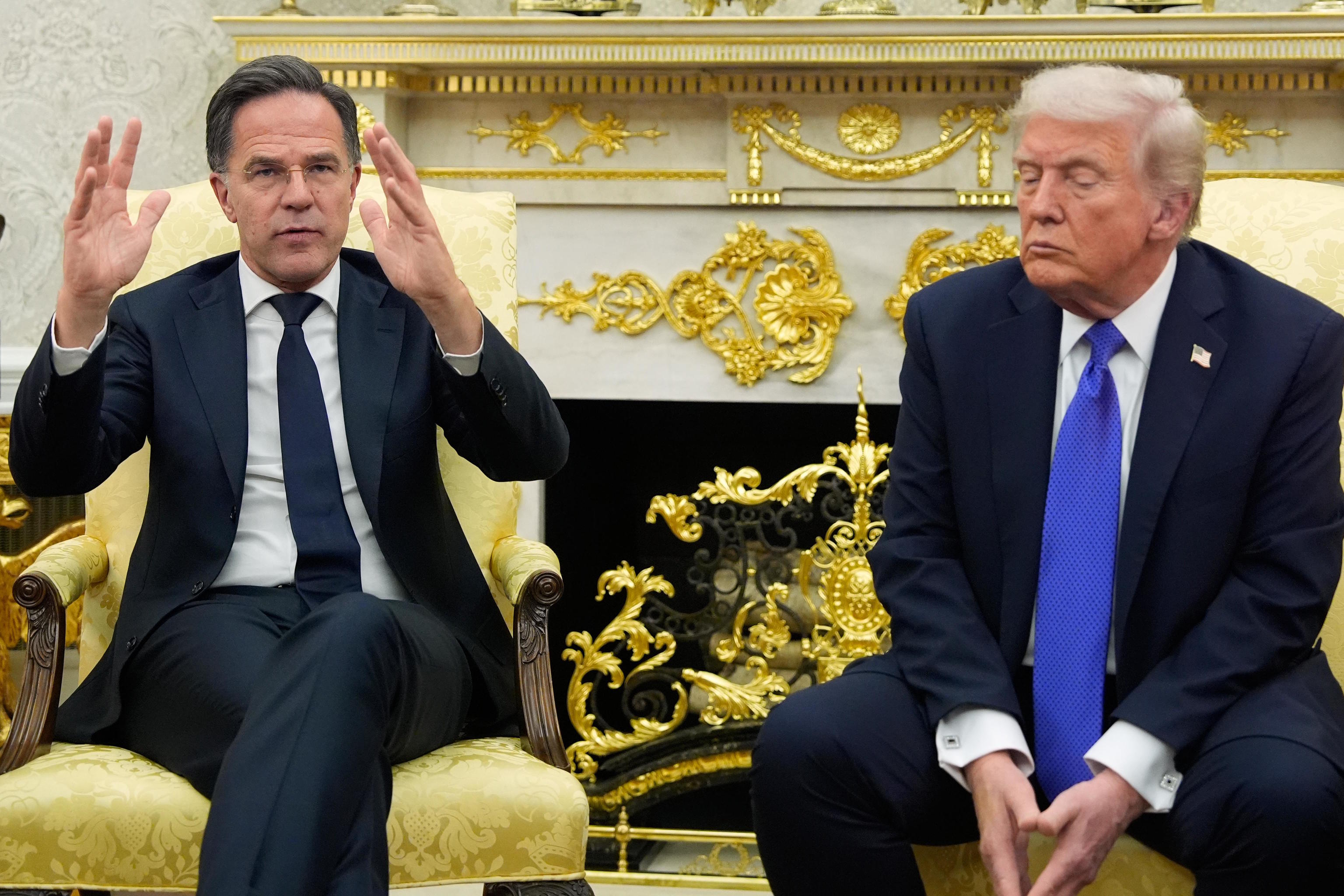If in exchange for peace in Ukraine we have to pressure the Norwegian Academy of Sciences to award the Nobel Prize to Trump, then we have faced worse situations. That seems to be Europe's idea in its relations with the United States. A vision of political realism. If the United States is in charge and even likes us to say it, and in return gives us breathing space, then we must accept the facts.
Probably no one saw it as clearly as the British Prime Minister, Keir Starmer, and, in general, the UK's political class. A second State visit, a stroll through the golf courses of the US president in Scotland, the appointment of the prince of darkness, Peter Mandelson, as ambassador to Washington... It is true that London, outside the EU, does not have the same room for maneuver as within (if that were the case for Spain, Pedro Sánchez would not have been able to avoid committing to increasing Defense spending to 5% in August). But facts are facts. For everyone. The United States has the dollar, artificial intelligence, oil, software, satellites, bombs, and missiles. And something more important: political will.
However, thanks to Vladimir Putin's stubbornness with Ukraine, which is starting to resemble that of Saddam Hussein in Kuwait in 1990, it seems that the two sides of the Atlantic are beginning to accept each other. Because anyone would have called crazy anyone who dared to predict that in October the United States and the European Union would simultaneously impose sanctions on Russia to force Putin to negotiate a way out of the war in Ukraine.
But, in practice, that is what happened on Wednesday. The EU announced that by 2026 (dates depend on contracts), the import of Russian natural gas will be completely prohibited, expanded the blacklist of Putin's ghost fleet from 440 to 557 tankers, and sanctioned 47 companies facilitating transactions with Russia. There are symbolic measures, such as those affecting a cryptocurrency market in Paraguay. And serious measures, especially the sanctions on ChinaOil, the trading division of PetroChina, which in turn is owned by CNP, the sixth-largest company in the world by revenue according to Fortune magazine's index.
Almost simultaneously, and after meeting with NATO Secretary General Mark Rutte, Trump announced that starting on November 21, he can impose sanctions on the two largest Russian oil companies, Rosneft and Lukoil, which account for around 70% of Moscow's oil exports.
It is impossible for Trump to agree to do anything that does not seem like a decision of his and his alone. But there seems to be more than just a coincidence in the two announcements.
US allies in Europe agreed in June to increase Defense spending to 5% of GDP by 2035, with the confidence, of course, that neither Trump nor anyone who thinks like him will be in the White House then to verify compliance with the commitments. A month later, the EU decided not to follow the examples of Canada and China, which reacted with their own countermeasures to Trump's trade war, and accepted a trade agreement with the US that was actually a surrender with all the trimmings to Washington. European Commissioner for Trade, Maros Sefcovic, justified European submission with an unequivocal "it's not just about trade. It's about security, it's about Ukraine, it's about geopolitical predictability."
There have been more concessions. The sanctions on China Oil and 11 other Chinese and Hong Kong entities must have sounded good to Trump, who last month told the EU that if they wanted the US to take a tougher stance on Moscow, they should impose such tariffs on China that in practice they would stop importing products from that country. It is also a submission that the same Denmark to which Trump said on March 5, "we are going to get Greenland one way or another," announced that it will spend 7.5 billion euros on the defense of that Arctic island... of which more than half will go towards the purchase of US F-35 fighter jets.
The road ahead will not be easy. And certainly, some European countries will encounter many difficulties along the way. The best example is Germany, which yesterday asked Trump to exempt the German division of Rosneft from sanctions, as it has stakes in three refineries that account for 12% of the refining capacity in the country. This is the price of the new transatlantic relationship.
